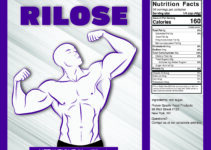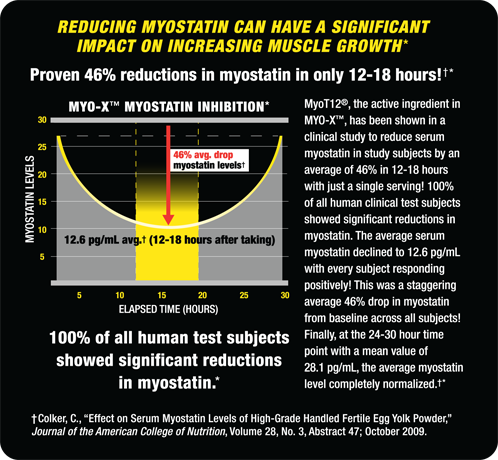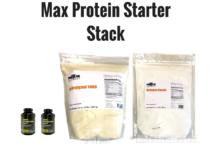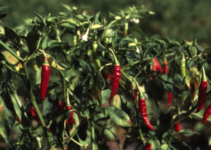I love studies done on protein. This is a great one on Peptopro. Its a hydrolyzed casein from Europe. I feel its one of the highest quality protein powders on the face of the earth. No protein has more research behind it then Peptopro. If you can stand the taste…yea its bitter from the peptides, I would suggest giving this a try. It truly is a protein supplement..not like whey protein which is really just a whole food…like drinking milk.
Protein from PeptoPro Improves Subsequent Performance in Top Athletes
Introduction
A commercial PeptoPro recovery drink, was compared with another commercial carbohydrate sports drink. Both drinks contained the same amount of carbohydrates and were consumed during the post-exercise recovery period after a performance test. Performance in an exercise bout after consuming the test drinks was investigated.
Subjects
Fifty well-trained athletes, selected from the pool of athletes supported by the German Olympic Support Centre (Olympia Stutzpunkt Rhein Ruhr, Essen) participated in the experiment.
Sports performed by the athletes, 26 males and 24 females, were badminton (n=4), hockey (n=4), athletics (n=11), rowing (n=10), swimming (n=10), and tennis (n=11).
Their age was between 17 and 39 years.
Protocol
The athletes refrained from rigorous physical exercise the day prior to the experimental day. Following an overnight fast, subjects arrived at the laboratory at 7:30 am by car or public transportation.
The subjects performed an exercise protocol until their estimated lactate levels was 4mmol/l. In this protocol, subjects cycle for 3 min at increasing power, starting at 50 W and increasing with 50 W each step, until the indicated lactate level was reached.
The individual blood lactate levels were tested prior to and during the experiment in samples taken from the earlobe.
Directly after the exercise terminated (defined as t=0), subjects entered a 240 min recovery period, and consumed the first test drink. At t=30, 60, and 120 min, subsequent drinks were consumed.
During the recovery period (t=0 through 240), subjects remained inactive in a supine position. At the end of the recovery period, a second exercise was performed with similar conditions to the first exercise.
The experiment was repeated after 1 week with the second drink. Drinks were provided in a double blind fashion.
Beverages
During post-exercise recovery, subjects received four times 330 ml of a carbohydrate (CHO) or a carbohydrate plus PeptoPro (CHO + PRO) containing drink. Mean intake over the 4-h period was about 0.36 g kg 1 h 1 carbohydrates with or without 0.18 g kg h 1 casein hydrolysate. CHO drink contained 8.2 g CHO per 100 ml, CHO PeptoPro drink 8.2 g CHO + 4.2 g protein (as PeptoPro) per 100 ml.
Results
Mean performance of the first exercise bout did not differ between the two experimental periods. Also, no effect of sex of the athlete, type of sport performed, weight and age were observed (results not shown). These results indicate that results were not affected by the period, and that a simple t-test was the appropriate method to test the effect of both drinks on the differences between pre-and post recovery exercise performance.
*All athletes performed less well during the second bout of exercise than during the first bout
*39 out of the 50 athletes performed better in the second bout after drink COH + PRO (P<0.001), 2 performed equally, and 9 performed less well.
*Mean exercise performance decreased from 4.67 to 4.30 kW kg-1 BW in the CHO group and from 4.67 to 4.40 kW kg -1 BW in the CHO + PRO Group. The differences were 0.37+/- 0.03 and 0.28 +/-0.03 kW kg-1 BW for CHO and CHO+PRO, respectively (Table 1). Performance was 0.10 +/-0.02 kw kg-1 BW less reduced in the CHO+PRO group (P<0.001) This is 2% of pre-recovery exercise performance at the CHO-group (Figure 2).
Conclusion
Of the 50 tested top athletes, 39 showed an improved performance by the nutritional intervention. Performance generated after the 4-H recovery period in which the drink containing PeptoPro was consumed, was 2.1% higher (significant) than when only a carbohydrate-drink was consumed. This makes PeptoPro a useful subsequent exercise and during regular and intermittent training.
Alex Rogers is a supplement manufacturing expert. He has been formulating, consulting, & manufacturing dietary supplements since 1998. Alex invented protein customization in 1998 & was the first company to allow consumers to create their own protein blends. He helped create the first supplement to contain natural follistatin, invented whey protein with egg lecithin, & recently imported the world’s first 100% hydrolyzed whey.






